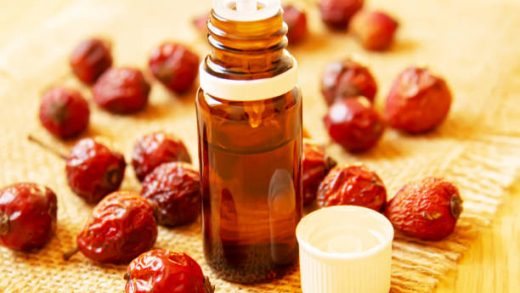What is exfoliation?
Exfoliation involves removing the dead skin cells from the skin’s surface to reveal the fresh, healthy skin cells underneath. The skin has many layers. Skin cells are constantly generated by the skin, which sends them from the dermis (lower layer) to the epidermis (upper layer) or surface. These cells gradually die as they rise to the top. Exfoliation removes dead skin cells to make way for new, glowing cells. Exfoliation allows moisturizing products to penetrate deeper into the skin and become more effective. The skin looks younger and smoother after exfoliation. Exfoliation is now a part of many facials and body treatments.
Why is exfoliation important?
- The process of cell renewal slows as we age. The body will take longer to regenerate new skin cells. Dead skin cells begin to accumulate unevenly, giving the surface of your skin a dull, dry, and rough appearance. Exfoliation can be beneficial as it helps remove the older skin cells and reveals the younger, fresher cells underneath. More youthful skin is more vibrant and fresh because it naturally exfoliates. The regeneration of skin cells is also faster. Older people’s skin is duller and drier as dead skin cells accumulate, and the resurrection is slower. The accumulation of dead skin can also lead to excess oil, clogged pores, and acne. If you exfoliate, your skin will be healthier.
- Learn face beauty tips by reading on! It helps to remove blackheads, whiteheads, and buildup in the pores. It improves skin texture and smooths out the skin, giving your face a flawless and soft look. It stimulates the blood flow in your face, giving it a youthful glow.
Why you shouldn’t over-exfoliate
- Exfoliation is no exception. Regular exfoliation will help you achieve healthy, glowing skin. Try for glowing skin. Exfoliate your skin only once a week. Over-exfoliating your skin can cause it to become dry, irritated, and damaged. Exfoliating your face excessively can cause your skin to become sensitive. Exfoliating too often can make your skin sensitive, causing irritation and redness. Instead of caring for your skin, it could get worse. After exfoliating, you should be cautious about exposure to sunlight. The UV rays of the Sun can damage the skin. Make sure you take good care of your face and skin.
Benefits of Exfoliation
- Exfoliation is not only good for your skin, but it also has many other benefits. These include:
Exfoliate for General Health and Well-Being
-
- Exfoliating the skin is a great way to increase blood circulation and lymphatic drainage and encourage the growth of new skin cells. It also helps break down fat tissues and removes toxins. The skin becomes soft and ready to absorb moisturizers after exfoliating.
Exfoliate for Clogged Pores
-
- Excessive exposure to pollution and dirt can cause clogged pores. Exfoliation can help you remove blackheads and whiteheads, which are clogged pores. The most common areas for breakouts include the nose, chin, and neck.
Exfoliate for Dry Skin
- Exfoliation can be very beneficial for dry, flaky skin. After exfoliating dry skin, use a mild moisturizer such as Dabur gulabari moisturizing cream to nourish new skin cells.
Exfoliate for Ingrown Hair
-
- Ingrown hair occurs when a growing hair cannot penetrate the skin, and a small red area appears around it. It usually happens after waxing when the hair that grows back is weak and can’t penetrate the skin. Exfoliation removes the dead skin and allows the hair to penetrate the skin.
Exfoliate for Pigmentation
- Pigmentation can be caused by age, pregnancy, or changes in hormone balance. As the skin ages, these areas become darker and more noticeable.
- Exfoliation helps to break up pigmented skin cells and encourages them to fade. It is also beneficial to have regular targeted facials in your salon to promote healthy skin reproduction, which will help these areas disappear.
Exfoliate For Blemished Skin
- Exfoliating the body or face at least twice weekly is essential for those with blemished, acne-prone skin. Some people think removing the skin is the best way to prevent a breakout. This will kill bacteria but also cause irritation and dry the skin.
- It is best to remove dead skin cells and keep the skin hydrated with a moisturizing cream like Dabur Gulabari, which is lighter. Apply the lotion using clean hands to avoid bacterial infections and spots.
Exfoliate for Post-Breakout Red and Dark Marks
- Sometimes, a dark spot can remain on your skin after a blemish. Exfoliating twice a week will help fade dark marks. This is because it removes damaged skin cells and promotes the growth of new healthy tissue.
Exfoliate For Sun Tanning
- Sun tanning requires that you remove dead skin cells. The Sun will affect the new skin cell growth if you withdraw dead skin. This will make your tan look more even and last longer. It would help if you also used body lotions to hydrate and protect your skin from the Sun. The exfoliation process helps detoxify your skin by removing toxic dead skin. It also gives you a healthier complexion. It reduces fine lines, sun damage and improves skin tone. Exfoliation kills bacteria and helps to enhance the penetration of moisturizing creams and treatment results. Learn more about how to remove tan.
- Overall, exfoliation helps detoxify your skin by removing toxic dead skin cells. It also gives you a healthier complexion and keeps your skin young and healthy. It reduces fine lines, sun damage and improves skin tone. Exfoliation kills bacteria and helps to prevent skin damage. It also enhances the penetration of moisturizing creams and treatment results.



